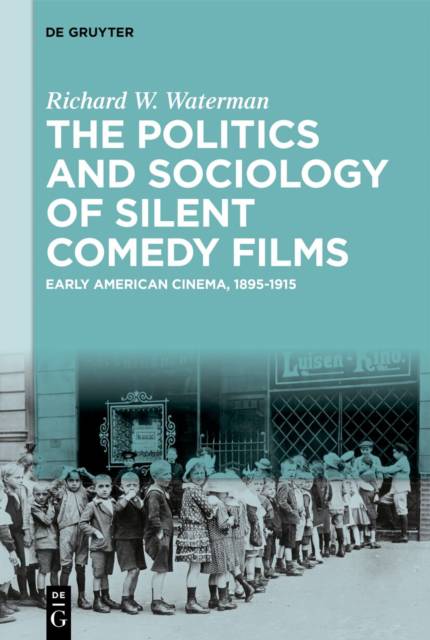
- Afhalen na 1 uur in een winkel met voorraad
- Gratis thuislevering in België vanaf € 30
- Ruim aanbod met 7 miljoen producten
- Afhalen na 1 uur in een winkel met voorraad
- Gratis thuislevering in België vanaf € 30
- Ruim aanbod met 7 miljoen producten
The Politics and Sociology of Silent Comedy Films
Early American Cinema, 1895-1915
Richard W WatermanOmschrijving
Comedies were among the first films ever made, and comedy played a critical and often overlooked role in the early development of cinema. This original book holistically examines the political and sociological dimensions of silent comedy films and the motion picture industry at the turn of the 20th century. Richard Waterman takes a unique social science approach to the cinematic ecosystem and its development during this era, studying the wider context - the interconnected social, political, economic, and technological movements and forces - that shaped film production, distribution, and consumption in this pivotal period in the history of film and culture. These include moral standards and censorship, class, racism, antisemitism, sexism, and the global film market. Additionally, the book analyzes specific films in-depth to mine their themes, social context, and impact. Bridging the humanities and social sciences, this is a distinctive and valuable contribution to the study of early cinema.
Specificaties
Betrokkenen
- Auteur(s):
- Uitgeverij:
Inhoud
- Aantal bladzijden:
- 213
- Taal:
- Engels
Eigenschappen
- Productcode (EAN):
- 9783111573588
- Verschijningsdatum:
- 19/05/2025
- Uitvoering:
- Hardcover
- Formaat:
- Genaaid
- Afmetingen:
- 156 mm x 234 mm
- Gewicht:
- 476 g

Alleen bij Standaard Boekhandel
Beoordelingen
We publiceren alleen reviews die voldoen aan de voorwaarden voor reviews. Bekijk onze voorwaarden voor reviews.







